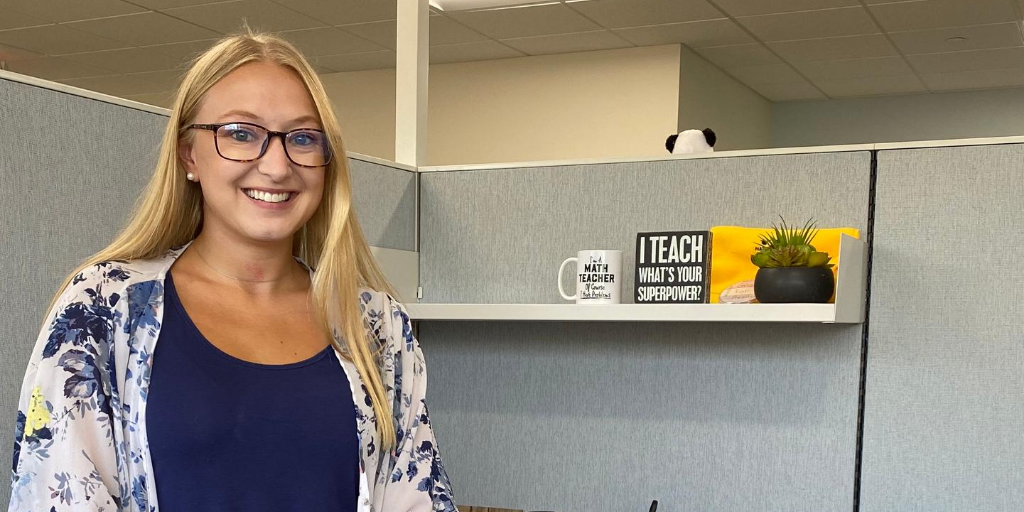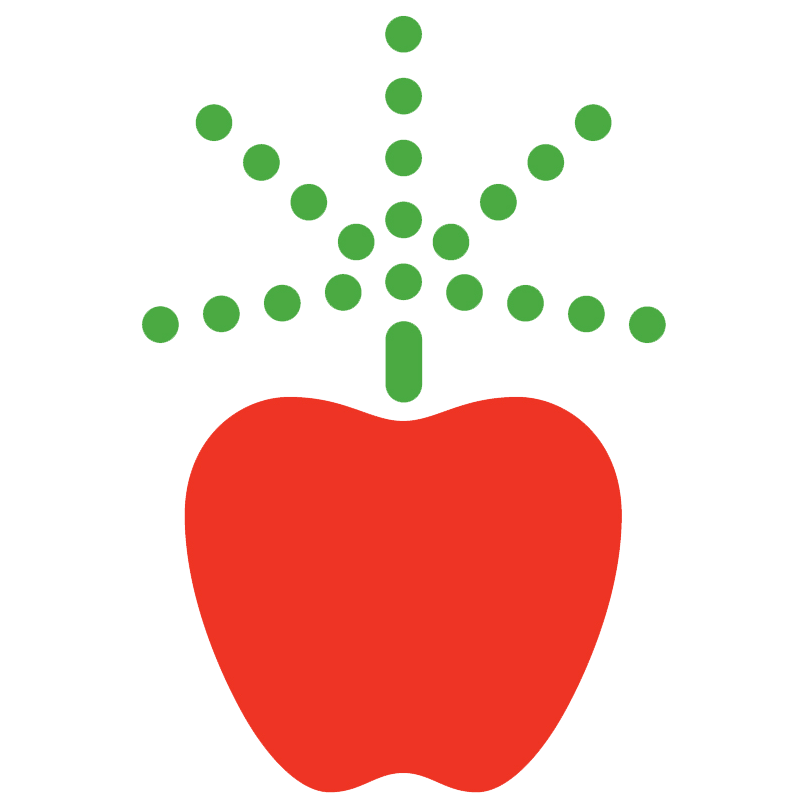
Miss Julia Mittelmeier graduated from Slippery Rock University with a degree in Middle-Level Mathematics Education and an M.Ed. in Technology for Online Instruction. After graduating from school, Miss Mittelmeier began to substitute teach for Pittsburgh area school districts before being hired as a full-time 6th-grade Mathematics teacher at PA Distance.
Like other members of the PA Distance family, Miss Mittelmeier knew she wanted to be a teacher when she was a young student herself.
“I have always had a love for math,” she said. “The teachers that I had influenced me to pursue education. And, of course, I always looked forward to math class the most.”
“The teachers that students have in school make or break their excitement for a subject or concept,” she explained. “If they have a teacher that’s energetic, they’re excited to attend class and, that’s how I wanted to be as a teacher.”
She opened her mind to teaching in a virtual environment after experiencing “online snow days” at a middle school where she was substitute teaching. During a particularly snowy day in Western Pennsylvania, Miss Mittelmeier’s school district was prepared to carry out online instruction while the students stayed at home during the involvement weather.
“I remember thinking to myself, what do you mean we can go online and teach?” she recalled.
“After learning more about teaching online, I thought it sounded fascinating and that it was something I wanted to continue doing,” she explained. “I like the individualized aspect of online education.”
When she saw that PA Distance, a virtual cyber charter school, was looking for a 6th-grade math teacher - she jumped on it. She started with PA Distance, at the beginning of the 2019-2020 school year, and taught 6th-grade math and science. However, this year, Miss Mittelmeier will be focusing solely on teaching mathematics to approximately 100 students.
“I love it here,” she said. “There are so many great resources available from our math interventionists to our administration.”
“Everyone is accommodating, and it translates to how helpful we are with our students, too,” she added.
In her 6th-grade virtual classroom, she teaches her students about rates and ratios, decimals and fractions, rational numbers, expressions, and equations, surface area and volume, and finally, statistics.
“My favorite concept is expressions and equations and, specifically, teaching the students how to solve one-step equations,” she said. “When I learned about this in 6th-grade, I thought it was so cool.”
Miss Mittelmeier focuses a good portion of her 6th-grade math classes on connecting the lessons to everyday life. For the 2020-2021 school year, she will focus on careers that align with the class math concepts to spark an interest among her students.
“For each one of my lessons, I’m going to include a real-world connection. I want my students to see the math applications in their life,” she explained. “By giving them examples, they’ll understand careers that they could pursue if they are interested.”
Miss Mittelmeier’s M.Ed. in Technology for Online Instruction comes in handy when finding the right virtual programs to benefit her students and grow their understanding.
“We can individualize our instruction for our students with the available technology,” she explained. “This year, we are using a program called Zearn that can zero in on specific needs of each student to build up their skills.”
Zearn Math is a curriculum product that aligns with the PA Core Standards for Mathematics. In addition to its alignment with the PA Core Standards, Zearn meets all rigorous expectations of the K-8 Publishers’ Criteria for the Common Core State Standards for Mathematics.
“I’m looking forward to using Zearn this year,” she said. “It’s going to work well in our setting because it has a mix of synchronous and asynchronous lessons. It includes a lot of small group exercises that we can do within our live classes.”
“We are also using a program this year called Brainingcamp that has digital manipulatives for students to use to visualize the math concepts,” she explained. “We are also sending out physical block kits to each student, too, because sometimes they do better when they physically touch things.”
Lastly, Miss Mittelmeier’s classes will be using materials and resources from a program called Eureka Math to build her students’ understanding and application of concepts.
“It’s a math curriculum that aligns with Zearn and works with the PA framework and standards that we need to meet,” she said.
“It makes students think abstractly. I’m excited to start using it this year,” she said. “This is going to be a greater transition into critical thinking skills for my students.”


